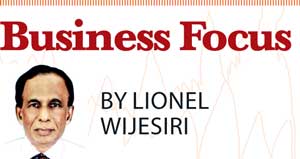20 Jun 2016 - {{hitsCtrl.values.hits}}

 Permission-based interaction is a relatively new term, which was coined and developed by the entrepreneur, Seth Godin, an American author, entrepreneur and marketer. Traditional methods of interaction often revolve around the idea of attracting the customer’s attention away from whatever they are doing – whether it is a television advertisement that cuts into a popular TV show or an Internet pop-up that interferes with a website. Such traditional methods of advertising (referred to as ‘interruption interaction’), have become less effective in the modern world, where consumers are overloaded with information.
Permission-based interaction is a relatively new term, which was coined and developed by the entrepreneur, Seth Godin, an American author, entrepreneur and marketer. Traditional methods of interaction often revolve around the idea of attracting the customer’s attention away from whatever they are doing – whether it is a television advertisement that cuts into a popular TV show or an Internet pop-up that interferes with a website. Such traditional methods of advertising (referred to as ‘interruption interaction’), have become less effective in the modern world, where consumers are overloaded with information.
Therefore, Godin introduced a new concept. This type of interaction aims to sell goods and services only when the prospect gives consent in advance to receive the marketing information.
Opt-in and -out
Opt-in email is a good example where Internet users sign-up (in other words give permission) to receive information about a certain product or a service. Supporters of permission-based interaction claim it to be effective, as the potential client would be more interested in information that was requested in advance. It is also more cost-efficient in comparison to traditional marketing methods, as businesses only need to target consumers who have expressed an interest in their product.
Interactions are based on an understanding of the specific needs, interests and behaviours of each customer. Increasingly, interactions are customer-initiated, which inherently means that the timing, media and channel are specific to customer preferences. Anticipating what customers will need becomes the basis for ongoing, two-way communications. Customers can opt-in and opt-out of specific stage of interactions. Or, customers may specify when, where and how they need to receive communications from
your business.
In the world of one-to-one marketing via the web, permission-based interactions in their purest form mean ‘no-spam’. It’s about asking for permission before sending e-mail offers to customers and giving them easy ways to say no thank you. Most companies are doing an excellent job of gaining permission from customers online, but this approach seems to stop with the online relationship, even though permission is just as important and just as powerful across all aspects of the customer relationship.
Don’t contact me at all
In today’s product push, acquisition-focused world, it’s hard to imagine a product executive asking a prospect or new customer, “Is this a good time to talk?” or “Is it in order if we call you again when we have other products or new services you might be interested in?” or “What’s the best time of day for us to call?” or “Would you prefer to hear from us via telephone, mail, e-mail, or in person?”
Yet ideally, if you truly want to have a relationship with customers that is exactly what you should do. Asking permission is scary for most marketers, because in their hearts they believe most prospects and customers, if given the choice, would answer, “Don’t contact me at all!” But, without permission, either tacit or implied, it really is difficult to have a relationship with customers. The challenge, then, is finding the best ways to secure permission. Relevancy and value can make
the difference.
Common interests
Forming relationships with customers requires that you find relevant common interests. Most companies understand that a critical component of customer relationship management (CRM) is dialogue, but they often forget that a meaningful dialogue requires relevancy. Very simply, that means you need to spend time and effort early on understanding who your customers are and what they like and don’t like.
And you have to remember that customers’ likes and dislikes change; over time you also need to track and remember those changes. You need systems and databases that can capture the nuances of the dialogue (e.g., demographics, interests, preferences and behaviour) at each point of contact. Then you need to use that information to ensure relevance in all aspects of the relationship through
all channels.
Relevance and value
Savvy marketers have learned that the key to gaining permission is in providing tangible value. Customers are willing to receive c-mail if they think they will get something of value along the way. That same principle applies to CRM.Customers will seldom prolong a relationship with a company that does not provide them with value. Value can take many forms beyond the immediate value of purchased products or services. Convenience, speed, ease of access, responsiveness, trust, integrity, education and service excellence arc all part, in varying degrees, of the value equation for most customers.
This is where relevance and value have to merge. Understanding what constitutes value to a customer will be critical to maintaining and growing the value of the relationship to the organisation.
Permission intensity
Permission-based marketing interacts with customers according to their permission intensity - that is, the degree to which a customer allows/solicits information from the marketer. Permission intensity varies between customers, between marketers communicating with the same customer and within the same customer-marketer relationship at different times. Permission intensity tends to be highest when a customer is actively shopping for a specific product or service that the
company provides.
As with other types of two-way marketing communication, permission-based interaction is most effective when the customer is comfortable with providing information about themselves in both quantity and quality. Some customers make reasoned decisions to trade total privacy for better service and more shopping opportunities. As a population, those most comfortable with this decision are those who have grown up with Internet and mobile marketing, who themselves are active in social media and surfing the Web.
Incentive
Permission-based interaction does not typically create immediate sales, but rather grabs a customer’s attention and preserves a business relationship. In permission interaction, a company makes a promise to a customer - it will do ‘x’ - in exchange for the customer’s attention; then it fulfils that promise - and nothing else. The key is to do exactly what was promised, instead of presuming the permission to sell more. If the deal is for one special bargain newsletter a month, then sending a second is a breach of permission—and customer trust.
To keep a consumer’s attention, businesses must offer an incentive. This incentive might include a sweepstakes, useful information, some kind of entertainment or perhaps a useful application or service. For example, a song-of-the-week entertainment incentive is particularly relevant to a company that sells music or musical equipment. A company might offer this incentive through its website, through traditional advertising and through social media or all of the above.
The messaging that follows takes a different approach than typical attention-grabbing advertising efforts. Because a business already has a customer’s attention, they can focus more on the various features of products or services promoted by the company or the brand in general. Occasionally, the incentive may have to be reinforced, or changed to keep the customer’s interest.
Worthy aspiration
As communication continues, the marketer aims to increase the level of permission from the customer—permission to get more data about the customer’s interests, permission to offer a new category, permission to offer a free sample. Finally, the marketer can leverage this permission by making product offers—which at this point are being directed at an engaged audience, willingly paying attention to your messages.
Individual permission-based interaction is a worthy aspiration. Wouldn’t you, as a customer, become increasingly loyal to any organisation that was truly devoted to this level of interaction?
Optimizing customer interactions is dependent on other internal factors like the business focus, organisational structure, business metrics and the technology that your organisation uses. These will be discussed in the coming weeks.
(Lionel Wijesiri, a corporate director with over 25 years’ senior managerial experience, can be contacted at [email protected])
10 Jan 2025 33 minute ago
10 Jan 2025 2 hours ago
10 Jan 2025 3 hours ago
10 Jan 2025 4 hours ago
10 Jan 2025 4 hours ago